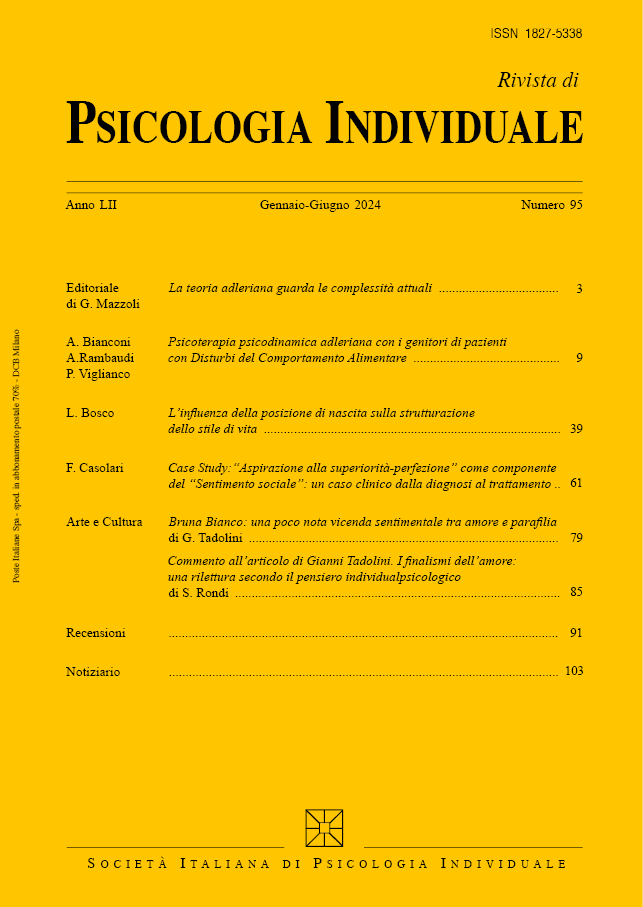Tipi di approccio e problemi di inter. vento nell'ambito della dissocialità minorile
Parole chiave:
case-famiglia, case di rieducazione, controcostrizione, costrizione, educazione, iposocialità, riformatorio, sentimento comunitario, volontà di potenza, compiti socialiAbstract
I comportamenti dissociali vengono agiti da minori con iposocialità (insufficiente sentimento comunitario) ed esagerata brama di potere, come rifiuto ai compiti sociali richiesti dalla società e ritenuti insopportabilmente costrittivi. Le condotte devianti vengono rinforzate se esistono modelli che favoriscono la formazione di queste identità negative, che sostituiscono quelle psicosociali, costruite dal bambino con dinamiche motivazionali e finalistiche favorite da famiglia, scuola e, poi, dal mondo del lavoro. Se si prende in considerazione la delinquenza solo da un punto di vista sociale e si trascurano questi fattori patogenetici ogni rieducazione risulterà impossibile, come dimostra l’ampia rassegna bibliografica presente nel testo, in cui vengono analizzati anche gli interventi istituzionali, in ambito amministrativo, in strutture supplettive della famiglia ed in riformatori. È auspicabile, pertanto, una ricaduta anche sul piano normativo dell’impostazione psico-socio-educativa adleriana






